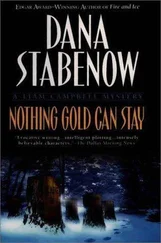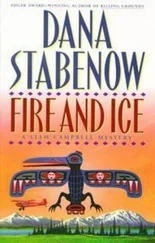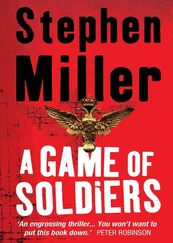Apart from inclination and familiarity, there were personal reasons as well. He was following in his father’s footsteps, a respected man on the Singaporean waterfront. The elder Noortman was a Netherlander who had gone to sea when he was sixteen and fetched up on the shore of the South China Sea, there to meet and marry a less than beautiful but very well connected Singaporean woman whose father had retired from twenty years at sea to a post with the Board of Customs in Singapore, and who brought his new son-in-law into what he regarded as the family firm almost immediately, which would have been impossible otherwise for a white man with no connections.
Noortman’s father rose slowly but steadily in rank, achieving a local reputation for ability and an international reputation for probity, by which was meant that he stole no more than what was generally recognized as a reasonable percentage of the worth of the goods that passed beneath his mark. Neither did he flaunt his extracurricular earnings in a vulgar display of wealth, which he well knew would provoke envy and suspicion, because he was already laboring under the handicap of his white skin. He maintained a modest if well-appointed home in the Or-:hard suburb for his wife, son, and two daughters, who were sent to pubic school, and the son on to the National University of Singapore.
Young Noortman graduated in the middle of his class, although he could have achieved high honors were it not for the admonishments of his father, whose own credo was never to draw any more attention to oneself than absolutely necessary. The younger Noortman’s degree was in business administration, but his real education took place on the docks, working nights and weekends for the Board of Customs, learning the arcane language of international shipping, no little facilitated by his flair for languages. This polyglot state had been inculcated almost from birth, as his father decreed that the family would speak Chinese on Mondays and Tuesdays, Dutch on Wednesdays and Thursdays, and English on Fridays, Saturdays, and Sundays. Noortman expanded his international vocabulary in school, studying French first, which introduced him to the Romance languages, and then Russian and Japanese, to the point that one day an instructor wondered out loud why he was majoring in business instead of in languages. He invited the young man out for dinner at a first-class restaurant run by an expatriate Filipino chef. There followed further discussion of Noortman’s tendency toward the multilingual, what he might do professionally with such an agile tongue, and seduction. Noortman thoroughly enjoyed both the chicken adobo and the sex.
From his instructor, an Israeli who had found the continual state of war on his nation’s borders to be aesthetically distasteful and had emigrated the day after he was of age, Noortman gained, among other things, a working knowledge of two more languages, Hebrew and Arabic. The instructor was moved to say, “There is a real future in government for a young man with your talents.”
Noortman, to whom double-entry bookkeeping did not come naturally, reported this to his father that evening-his father had decreed that he would pursue his studies from home, not from a room in a dormitory on campus-with the admittedly faint hope that he might be allowed to take his future into his own hands. The elder Noortman had replied calmly, “There is a real future in the customs service as well.”
Resentfully, Noortman went back to school and continued to wrestle with interest rates and amortization and debentures. When he graduated he made a second bid for freedom, requesting permission to pursue a master’s degree in languages. This, too, was denied, and his resentment, festering beneath a dutiful facade, grew into a bitter anger. Still dependent on his father’s largesse, he accepted an offer of employment in the customs service. If he was not quite under the direct supervision of the elder Noortman, then he was close enough for his father to critique his job performance every evening after dinner. Which he did, with a devastating eye for every tiny error and a dispassionate manner of speaking that was withering in the extreme. The younger Noortman endured these critiques with outward calm, but he was already looking for a way out.
By this time his clothes occupied half the closet and drawer space in the Israeli instructor’s home. He told his father the instructor was continuing to tutor him in languages, which was technically the truth. The elder Noortman, in the magisterial way that his son had come to detest, decided this was acceptable. Freighters, containerships, bulk carriers, tankers, military vessels of every size and shape, cruise ships, they all docked at Singapore, and they carried multinational crews. Many languages could greatly enhance one’s future in the customs service.
One day, a year into full-time employment in the family business, he was told by his father that he had located a suitable bride for his son, a well-connected young woman whose father was a relation of the Goh family, a scion of which currently occupied the prime minister’s office. The Goh family’s reservations over allying themselves with a half-breed had been overcome by the general respect with which the elder Noortman was regarded by people who mattered. The matter was fully explained to the younger Noortman, who walked out of his father’s study that evening with the sound of a cell door slamming in his ears.
The following week, a wiry Chinese man in his late thirties had appeared in the customs office. He asked for Noortman in Mandarin.
“I am Noortman,” the young man replied, in that same language.
The Chinese looked at him with an indifferent gaze. “Not you.”
At that moment his father appeared and shepherded the Chinese into his office and closed the door behind them. They were in there for quite some time, and when the Chinese left the elder Noortman escorted him to the door and all the way out to his car, an honor usually accorded only to high government officials on fact-finding missions.
“Who is the Chinese man you spoke to today?” Noortman asked his father over dinner that evening.
His father returned an impassive stare. “He is nothing and no one to you. Do not speak of him again.”
The next day the younger Noortman noticed a great deal of activity on and around a freighter moored three docks down from the office. When he went to take a closer look, he was waved off by a man with an automatic rifle slung over his shoulder and no uniform.
He sat on a crate just outside the perimeter created by perhaps a dozen such men, the majority of them Indonesian and Filipino, he thought, all with the same flat, steady regard. This regard was trained outward, away from the ship they ringed, ignoring the cranes and trucks moving around them as container after unmarked container was unloaded, settled onto the back of a flatbed, and moved off the dock. The men were rough-edged and muscular. They continued to ignore him so long as he did not breach their perimeter, but when he appeared the next day the Chinese man he had seen in his father’s office came down the gangway of the freighter and walked up to him. “What do you want?”
Noortman rose to his feet without undue haste, a nice blend of deference to elders and a display of self-confidence. “I am the son of Noortman, the customs agent.”
“I know,” the Chinese said. “What do you want?”
“I have been watching you. Over the last thirty-six hours, you have off-loaded almost one hundred containers of freight and reloaded them on a freighter bound for the port of Tokyo.”
The Chinese did not change expression.
“I notice that my father passed all of the containers from your ship through customs, even when he had to work overtime to do so.”
Читать дальше












